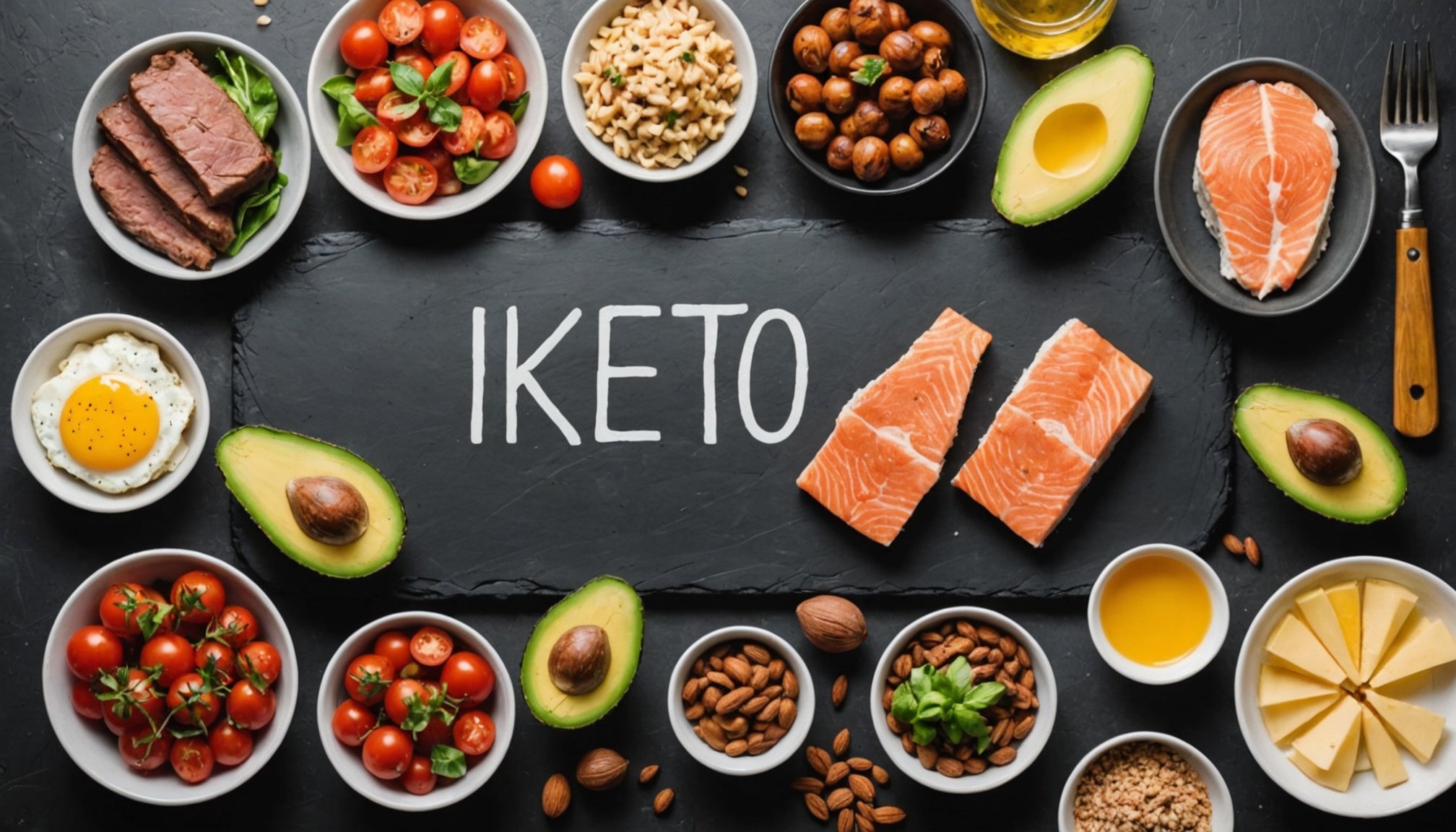In recent years, the keto diet has gained popularity, especially among athletes seeking to enhance their performance. This high-fat, low-carbohydrate approach to nutrition may seem counterintuitive, given the traditional emphasis on carbohydrates for energy. Yet, many athletes are turning towards ketogenic diets to improve their endurance, shed weight, and build muscle. In this article, we will explore what the keto diet entails, its benefits and challenges for athletes, and the implications for those engaged in various levels of training. We aim to provide you with a comprehensive understanding of how this dietary approach could impact your exercise regimen.
Understanding the Keto Diet
The keto diet, or ketogenic diet, primarily focuses on drastically reducing carbohydrate intake while increasing dietary fat. The goal is to enter a metabolic state known as ketosis, where the body becomes more efficient at burning fat for energy instead of relying on carbs. This transition can lead to various health benefits, including improved blood sugar control, reduced hunger, and enhanced mental clarity.
Also to read : How does practicing gratitude influence your fitness journey?
For athletes, the key to understanding the keto diet lies in its impact on performance. While traditionally, athletes have relied on high carbohydrate diets to fuel their activities, the shift to a low-carb, high-fat approach requires some adaptation. Initially, you may experience a dip in performance as your body adjusts to burning fat instead of carbs. This adjustment period can last anywhere from a few days to several weeks, depending on individual metabolism and activity levels.
Moreover, the ratio of macronutrients in a keto diet typically consists of approximately 70-75% fat, 20-25% protein, and only 5-10% carbohydrates. Understanding these proportions is crucial. It helps you design meals that not only keep you satisfied but also support your training goals.
Have you seen this : Essential Nutritional Tactics for Bodybuilders in the Cutting Phase: Maximize Your Results!
Additionally, there are different variations of the keto diet, such as the targeted ketogenic diet (TKD) and cyclical ketogenic diet (CKD), which may be more suitable for athletes. TKD allows for a small amount of carbs around workouts, while CKD involves cycling between periods of low and high carbohydrate intake. These versions can help maintain performance levels during high-intensity or longer-duration activities.
Benefits of the Keto Diet for Athletes
Adopting a keto diet can offer several benefits for athletes. One major advantage is improved fat oxidation. During prolonged exercise, the body often turns to stored fat for fuel once glycogen levels are depleted. By following a ketogenic diet, your body becomes more efficient at utilizing fat as an energy source, which can be particularly beneficial during endurance activities.
Additionally, athletes may experience stable energy levels throughout their workouts. Traditional high-carb diets can lead to spikes and crashes in energy levels, often leaving you feeling fatigued or needing a quick source of fuel. In contrast, as you adapt to a keto diet, you might find that your energy remains steady, allowing you to sustain high intensity for longer periods.
The keto diet can also assist with weight management. For athletes looking to reduce body fat while maintaining or even gaining muscle, a ketogenic approach can be effective. This is because the increase in protein intake, combined with fat consumption, can promote muscle repair and growth while supporting fat loss.
Moreover, another benefit that athletes might appreciate is the potential for reduced inflammation and faster recovery times. Some studies suggest that ketones produced during ketosis have anti-inflammatory properties. This could mean quicker recovery from intense workouts, allowing you to train more frequently and effectively.
Finally, mental clarity is often cited as a significant advantage of the keto diet. Athletes who have adopted this diet frequently report improved focus and concentration during training sessions, which can be crucial for optimizing performance.
Challenges of the Keto Diet for Athletes
While the keto diet presents numerous benefits, it also comes with its own set of challenges. One of the most significant hurdles is the initial transition phase, often referred to as the “keto flu.” During this period, athletes may experience various symptoms, such as fatigue, headaches, dizziness, and irritability, as the body adapts to a new source of energy. It can be discouraging, especially when you are accustomed to high intensity training.
Another challenge involves meeting your nutritional needs while adhering to a strict ketogenic plan. Depending on the intensity and duration of your workouts, you may require more protein and carbohydrates than what the standard keto diet provides. This means that athletes need to be diligent about their meal planning to ensure they get sufficient nutrients to support their training and recovery.
In terms of performance, some athletes may find that their peak performance declines during the initial adaptation period, leading to concerns about losing their competitive edge. While many athletes adapt over time and report improved performance, the adjustment period can be frustrating. You might need to modify your exercise routine temporarily or adjust your expectations while your body acclimates.
Moreover, for certain sports that require explosive strength and power, the lack of readily available carbohydrates may hinder performance. High-intensity activities often rely on glycogen stores for quick bursts of energy. You may want to consider how this affects your specific sport and whether the keto diet aligns with your goals.
Lastly, social situations can present an additional challenge. Following a keto diet often means skipping out on traditional meals that include carbs. This can make dining with friends or enjoying events centered around food more complicated. Being prepared with your meals can help, but it requires a level of commitment that can be challenging for some athletes.
Practical Tips for Athletes on the Keto Diet
If you decide to adopt the keto diet as an athlete, several practical tips can help you maximize your success. First, focus on whole, nutrient-dense foods. Base your meals around healthy sources of fat such as avocados, nuts, seeds, and olive oil, while ensuring you consume adequate protein from sources like lean meats, fish, and eggs. Incorporating a variety of vegetables will also help provide essential vitamins and minerals.
Next, consider tracking your macros to ensure that your ratios align with a typical ketogenic plan. Using a food diary or an app can help you monitor your carbohydrate intake and stay within your target range. This can also assist in identifying any deficiencies or areas for improvement.
Hydration is another important aspect. When following a low-carb diet, the body tends to excrete more water and electrolytes. Make sure to drink plenty of fluids and consider adding an electrolyte supplement to prevent dehydration and maintain performance.
Experimenting with the timing of your meals around training sessions is also crucial. Some athletes find success with consuming a small amount of carbohydrates before or after workouts to maintain energy without disrupting ketosis. This approach, known as targeted ketogenic dieting, might work well for those involved in high-intensity or prolonged activities.
Lastly, listen to your body. Pay attention to how you feel during workouts and adjust your diet as needed. Every athlete is different, and what works for one may not work for another. Don’t hesitate to seek guidance from a nutritionist or dietitian specializing in sports nutrition to create a plan tailored to your needs.
In conclusion, the keto diet can be a viable option for athletes seeking to improve their performance, maintain their weight, and enhance their endurance. However, it is essential to recognize the challenges that come with this dietary approach, especially during the adaptation phase. By understanding the fundamentals of the ketogenic diet, its benefits and challenges, and implementing practical strategies, you can successfully navigate this journey. Remember, every athlete’s body responds differently, so focusing on what works best for you is crucial. As you embark on this dietary adventure, equip yourself with the knowledge and resources to make informed decisions that align with your training objectives and overall health.











